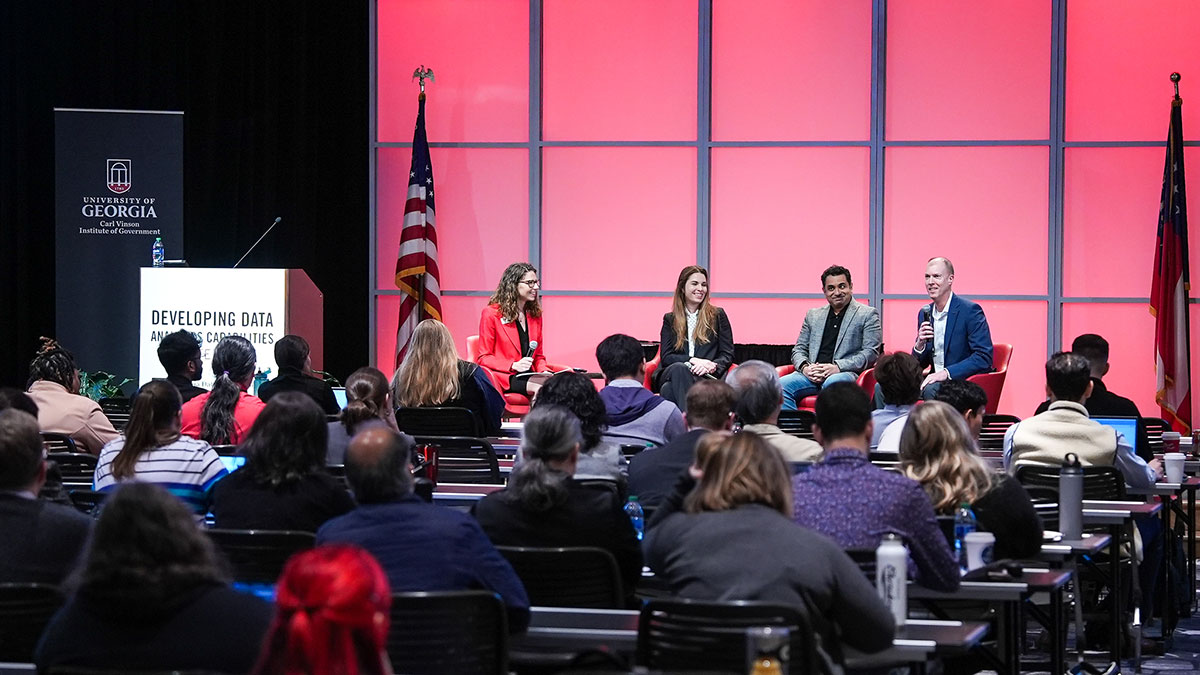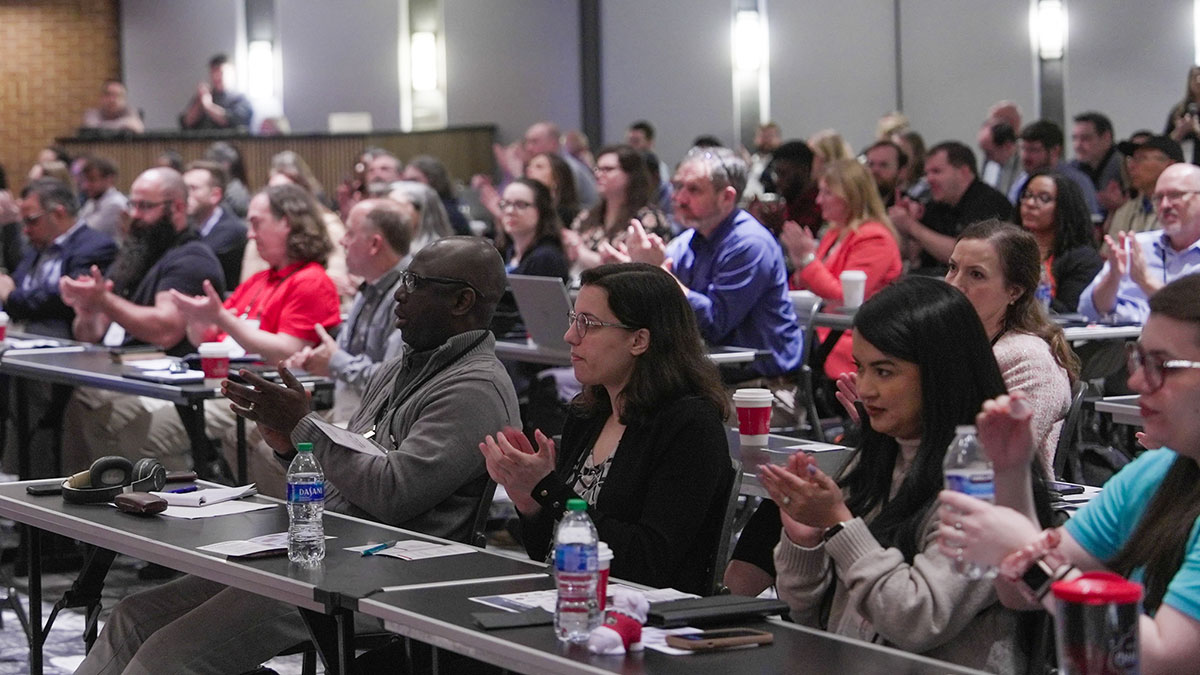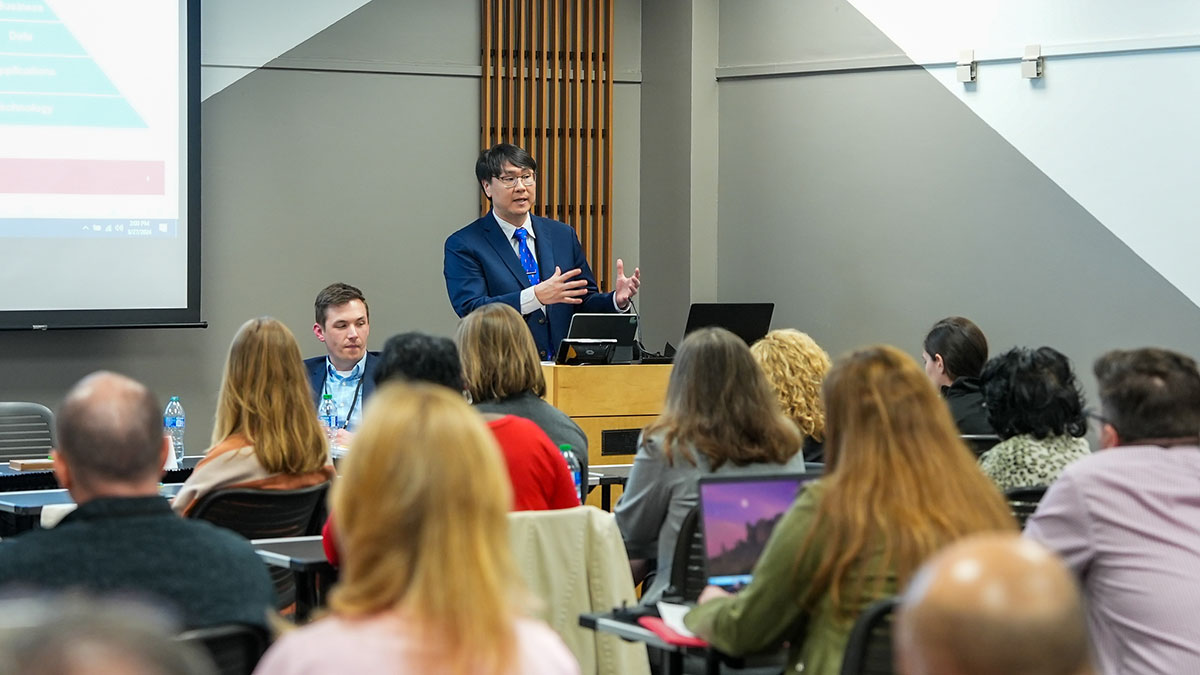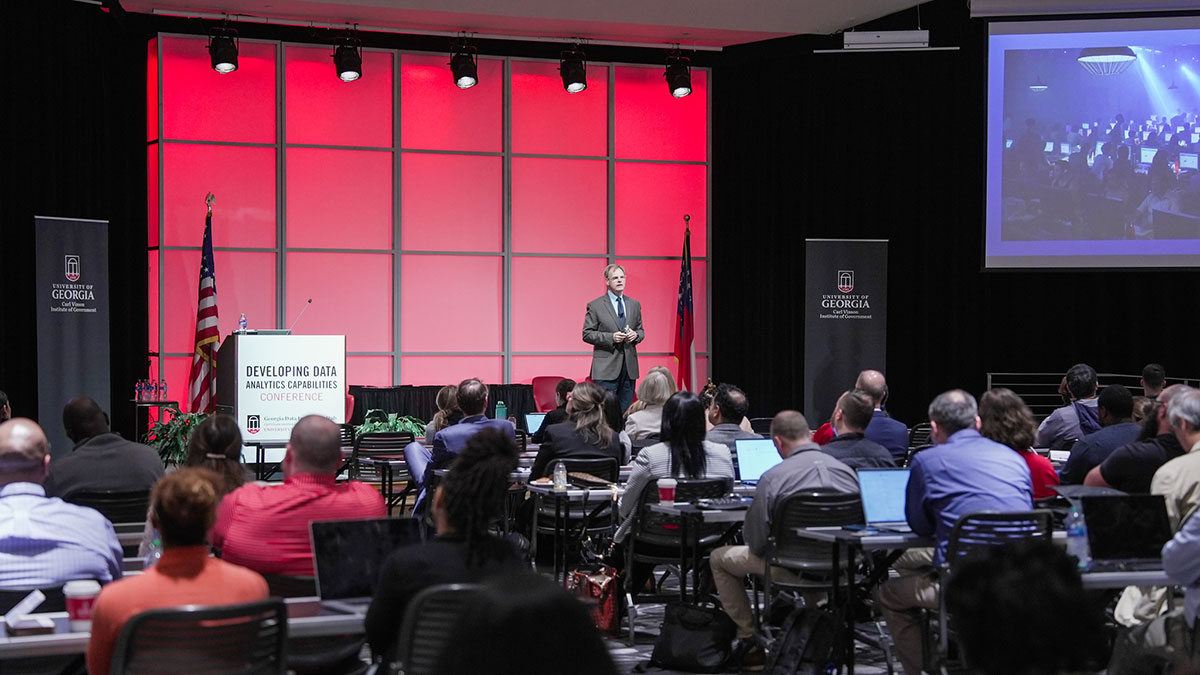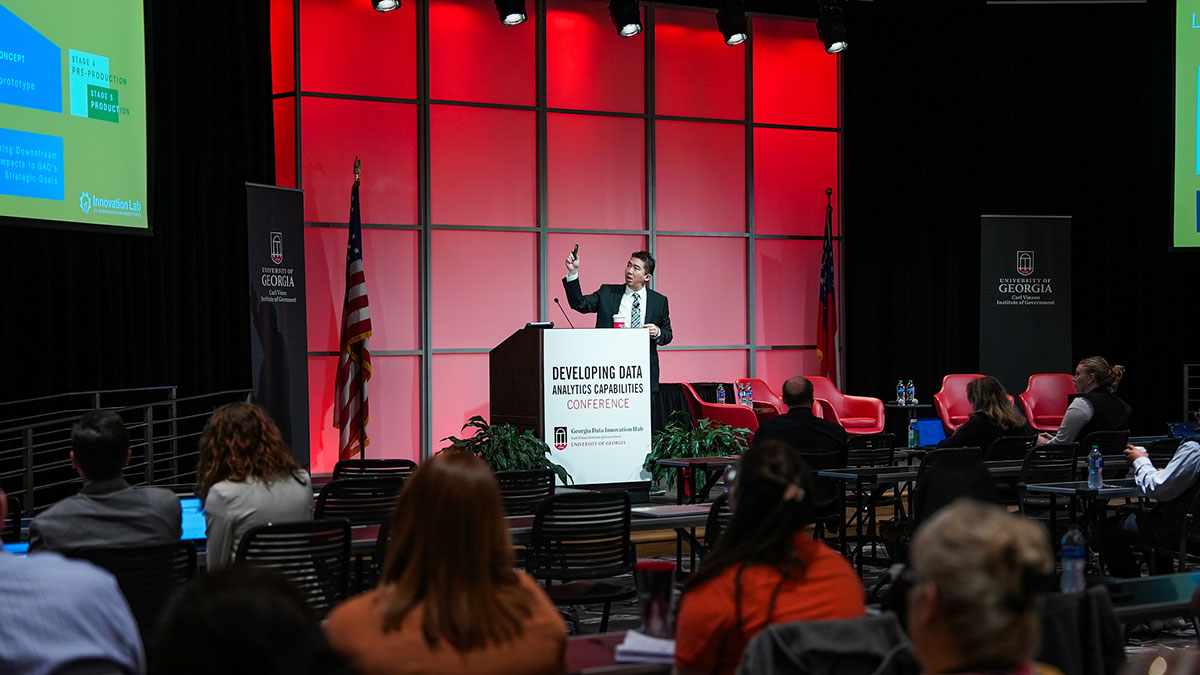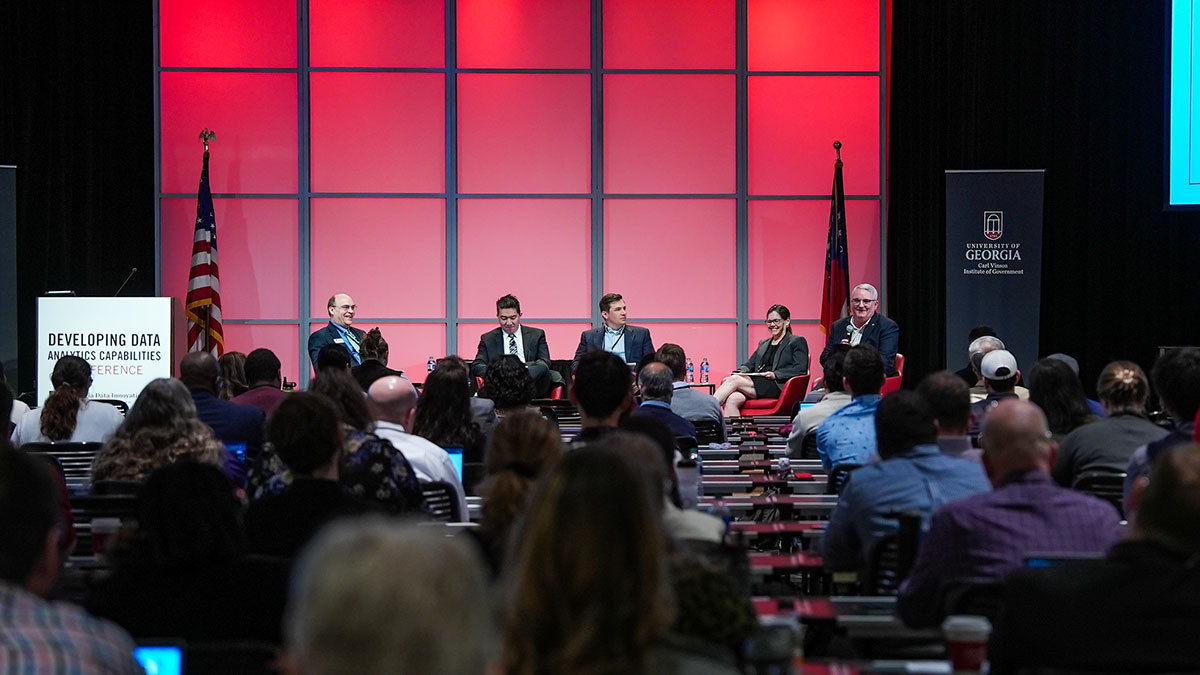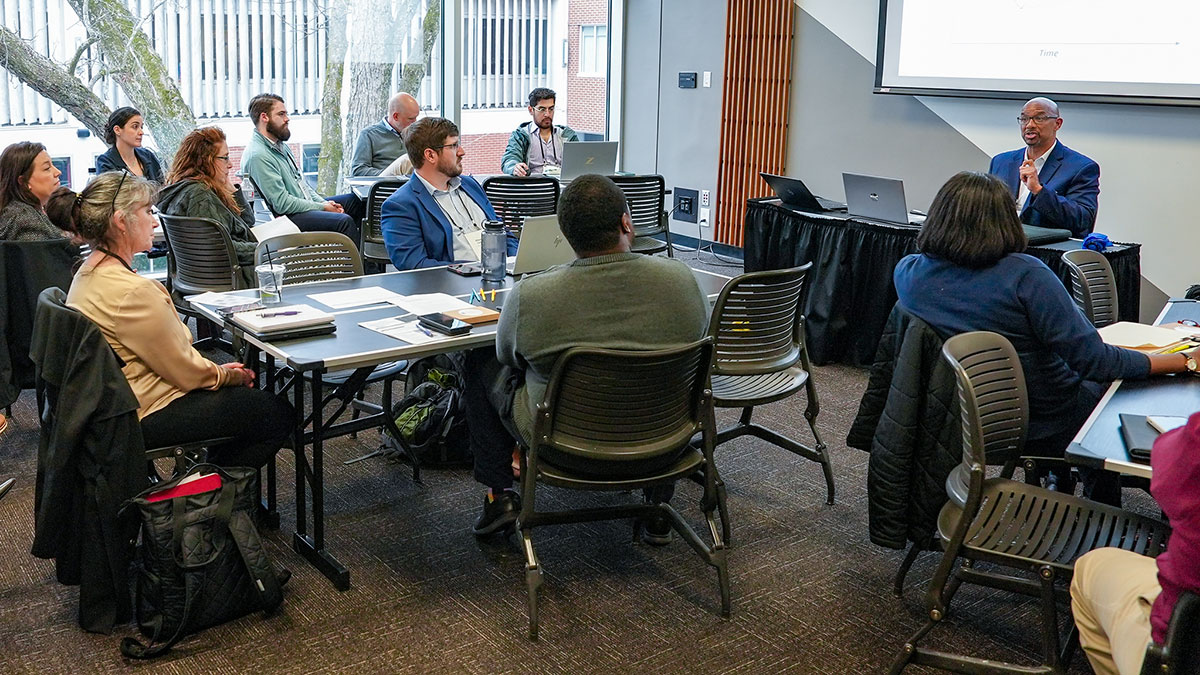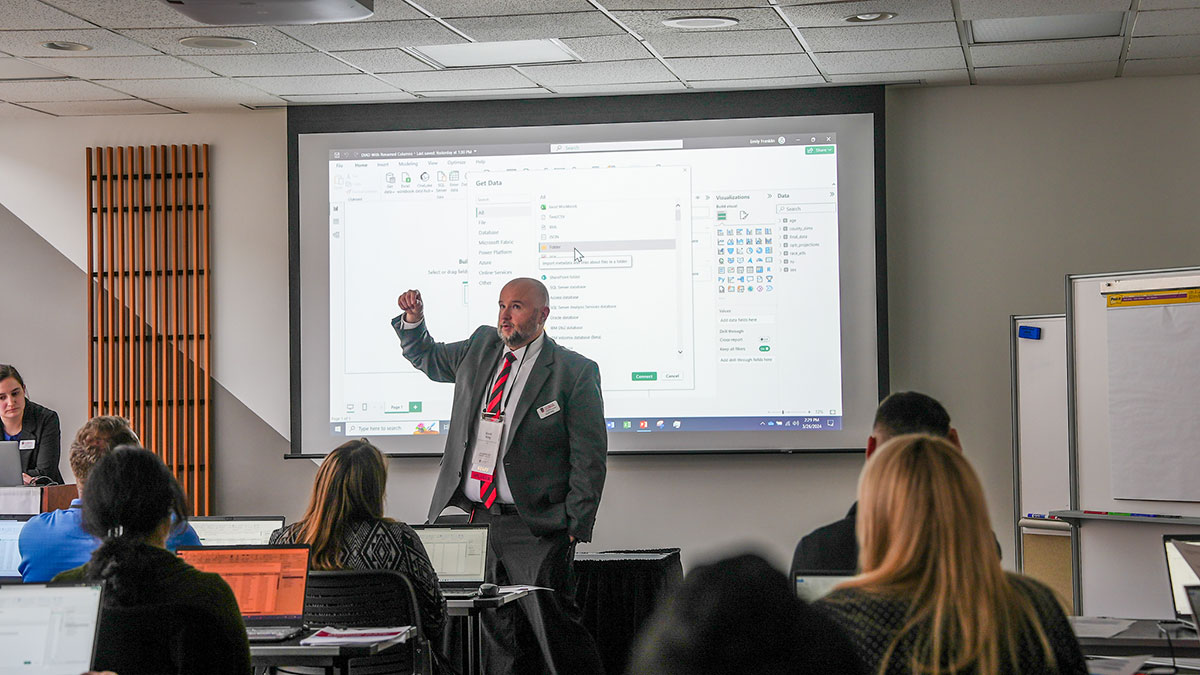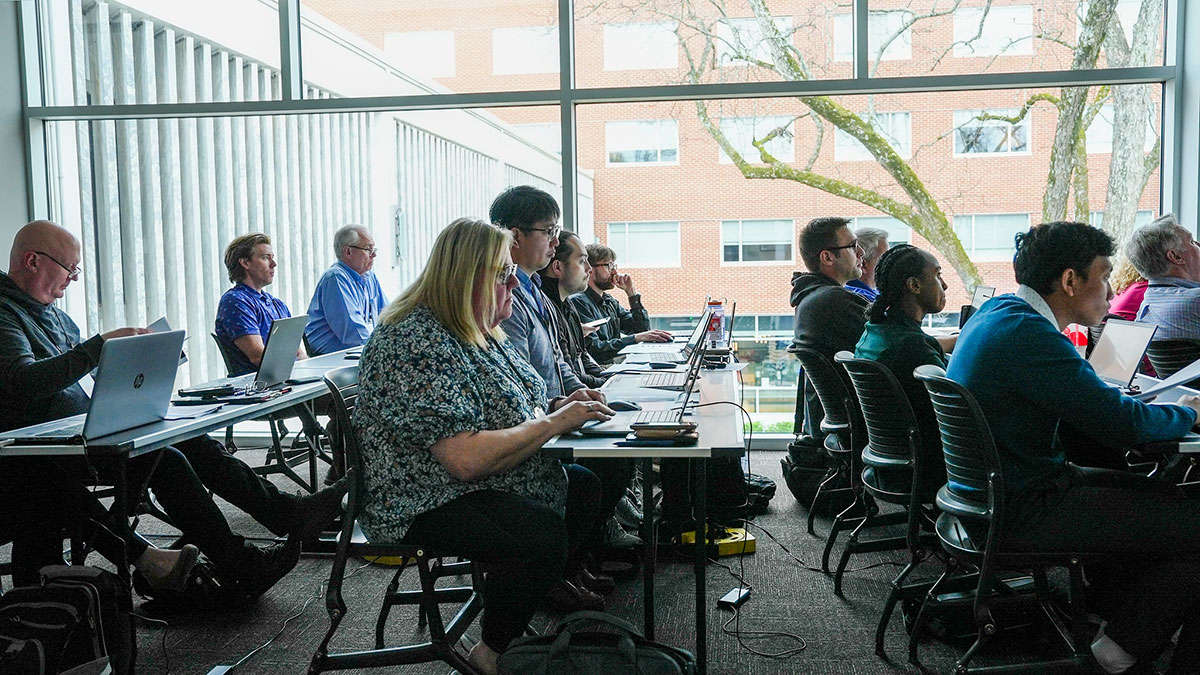Institute of Government’s Data Innovation Hub hosts second annual Developing Data Analytics Capabilities Conference
“The Carl Vinson Institute plays such an important role for government executives across Georgia. This event was a perfect example of its meaningful work. Georgia’s government leaders are always looking for new ways to serve Georgians and the Carl Vinson Institute is there to help,” said Patrick Moore, client account leader for Accenture’s Georgia’s public service sector.
Generative AI is poised to revolutionize the way we live and work, and now is the time for organizations to lay the groundwork for its implementation, according to speakers at the second annual Developing Data Analytics Capabilities Conference at the University of Georgia.
The conference, hosted by the UGA Carl Vinson Institute of Government’s Georgia Data Innovation Hub, drew nearly 250 people to learn more about this rapidly evolving field.
The conference focused on generative AI, advanced analytics and their impacts on government. The two-day event was packed with keynotes, plenary panels and breakout sessions, featuring experts from industry, education and government.
“Leaders turn to data to inform and support decision-making. This conference is one way the Institute of Government is helping to strengthen the knowledge and skills of professionals who work with data across the public sector,” said UGA Institute of Government Director Rob Gordon.
From mobile apps that subtly encourage shopping to chatbots that provide basic customer service, people already encounter artificial intelligence in daily life. Timothy Chester, Vice President for Information Technology at UGA and University System of Georgia Vice Chancellor for Information Technology, presented a keynote session on the practical uses of generative AI and encouraged participants to welcome the technology.
“We shouldn't fear AI,” Chester said. “The people who embrace it and learn how to use it to multiply the value that they can provide to employers are the people who will have super careers over the next decade.”
Taka Ariga, U.S. Government Accountability Office (GAO) Chief Data Scientist and Director of GAO’s Innovation Lab, offered a keynote on the importance of developing an organizational data strategy.
“The intersection of computer power, availability of the data, and the wondrous advancements in science, mathematics and statistics allow us to do things in a way that we couldn't even have imagined just a couple of years ago,” Ariga said. “How do we make sure that we harness the power of something like generative AI while bringing the sort of necessary guardrail around it on the regulatory side?”
The Georgia Technology Authority (GTA) is working on AI and data guidelines for state agencies, according to GTA Chief Digital and AI Officer Nikhil Deshpande.
“We have an AI council across the state where multiple state agency CIOs have come together, and we have educational organizations that have offered to help us,” he said.
Georgia Cyber Innovation & Training Center Executive Director Eric Toler talked about the center’s ongoing work at the state and federal level.
“We have a unique ecosystem where we have Army Cyber Command, U.S. Cyber Command, Department of Energy Savannah River National Lab, the Georgia Bureau of Investigation Cyber Crime Center, the U.S. Secret Service and FBI in our building along with Augusta Technical College, Augusta University and 14 industry partners all with a common mission in cyber operations,” he said.
Workforce development was another key theme at the conference.
Gwinnett County Public Schools Artificial Intelligence and Computer Science Instructional Specialist Laura Gray spoke about preparing today’s students for tomorrow’s workforce. Each of her system’s schools offers computer science classes, and Gray said some schools are currently piloting courses in cyber security, data science and linear algebra programming.
“We want all of our students to be future ready and ready to be employees,” she said.
The event also had pre-conference workshops, including one led by the Institute of Government’s James Byars on using business intelligence tools to build data dashboards.
“Demand for the class was high, and we plan to offer a more in-depth, stand-alone training in the fall,” said Anna Miller, institute faculty and conference organizer.
Attendees said they appreciated the sharing of information and networking at the event. Kelvin Joiner, director of Information Technology for the City of Fayetteville, attended the dashboard training to learn new techniques to help keep Fayetteville citizens informed about city projects.
“Our goal is to get more data analytics from the data we have so we can present it to our citizens. This conference gave us a good foundation,” he said.
Learn more about the UGA Institute of Government Data Innovation Hub at the institute’s website, cviog.uga.edu/datahub.
